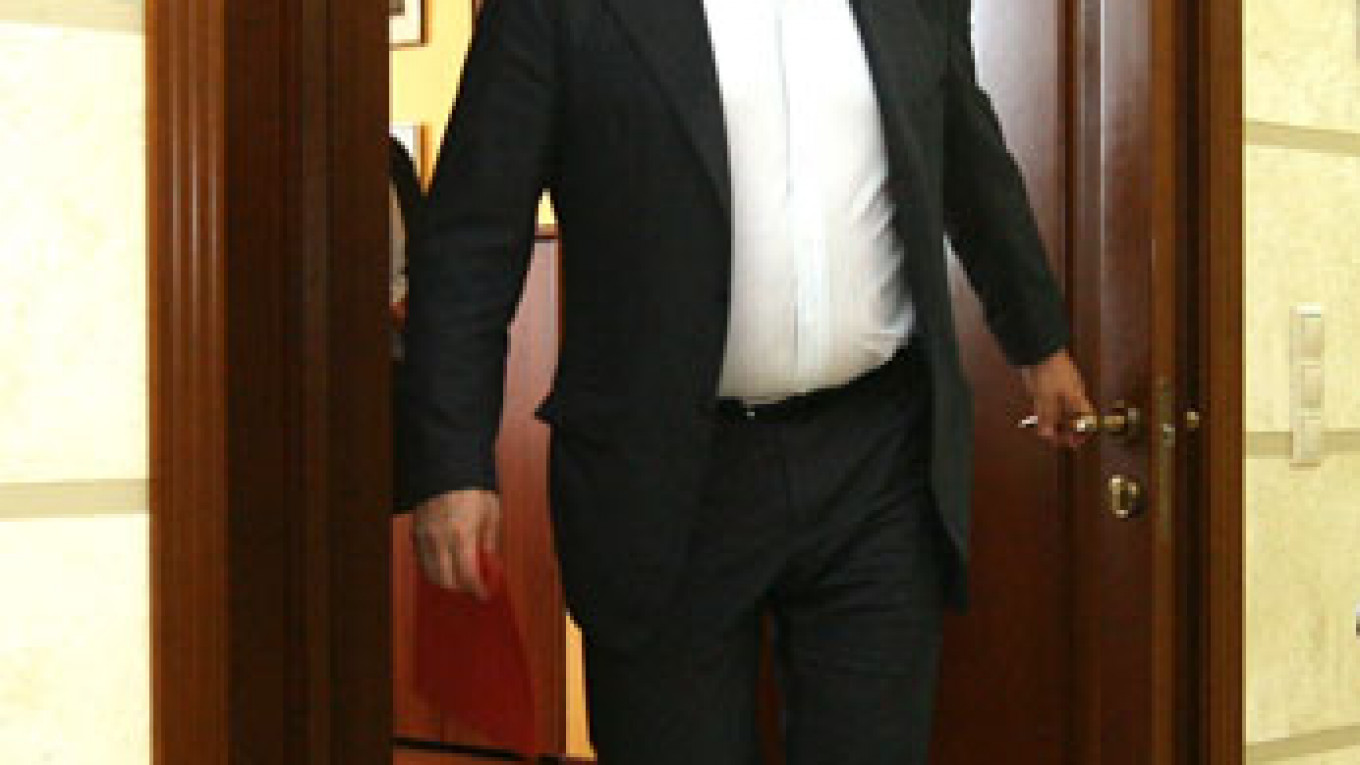Billionaire Mikhail Fridman resigned Monday as chief executive of TNK-BP, plunging the country's No. 3 oil firm deeper into crisis and challenging co-owner BP's grip on the business.
His departure reflected a further breakdown in relations between the British oil major and the four Russian shareholders, led by Fridman, who together own the other half of TNK-BP, said a source close to the Alfa-Access-Renova Group, which represents the tycoons.
"The AAR consortium has lost confidence in BP as a partner. The status quo cannot continue," the source said.
BP has recouped the initial $7 billion investment it made in TNK-BP in 2003 many times over. But it has had a series of clashes with its local shareholders over corporate governance, with current BP chief executive Bob Dudley being forced out as head of the 50-50 joint venture in 2008.
Fridman's resignation, effective in 30 days, intensifies a shareholder dispute dating back to BP's failed attempt last year to strike a strategic exploration alliance with state-controlled oil firm Rosneft.
Arbitration proceedings continue under British law into whether the failed BP-Rosneft deal violated an exclusivity clause in the TNK-BP shareholder agreement, with further hearings expected to be held toward the end of this year.
The impasse also follows the formation of a new administration by President Vladimir Putin, whose close ally and former energy tsar Igor Sechin — the mastermind of the abortive BP deal — has just been appointed CEO of Rosneft.
Since Putin's re-election in March, Rosneft has struck major exploration deals with ExxonMobil, Eni and Statoil. BP remains sidelined.
With Sechin also nominated by Putin to chair state energy holding company Rosneftegaz, speculation has mounted that TNK-BP could be a potential takeover target for the state, industry sources and analysts say.
An industry source said Maxim Barsky, who had run TNK-BP on a day-to-day basis as deputy CEO before leaving late last year, may return in a new role in a move that could further antagonize BP. Barsky declined comment.
The TNK-BP news broke on the day British Foreign Secretary William Hague visited Moscow, but the matter did not come up at a joint news conference with Foreign Minister Sergei Lavrov.
Governance at TNK-BP has once again been on the brink of collapse since the resignation of two independent directors, former German Chancellor Gerhard SchrЪder and mining industry veteran James Leng, at the end of 2011. Only one has been replaced.
Last week the board postponed a dividend payout in a sign of a broadening rift between AAR and BP, which each received $3.75 billion in 2011 dividends from TNK-BP.
TNK-BP is still looking to replace an independent board director and was unable to decide on the dividend because the board does not have a quorum, the company said.
Two other members of AAR, Viktor Vekselberg and German Khan, retain senior posts at the company, which will be run by executives holding powers of attorney in their areas of expertise after Fridman's resignation takes effect, TNK-BP said.
BP said the resignation would have no effect on the company, which would be run by the management board, which also includes the chief financial officer, Jonathan Muir, and top upstream and downstream executives.
Fridman had not been involved in running the business on a day-to-day basis, BP added.
"As long as he owns it, he will de facto run it," said a well-placed source in Moscow energy circles. "This is just a way to formally disassociate himself from the management. Looks like preparing the ship for a storm."
TNK-BP's board is likely to remain inquorate until late this year, meaning that the oil firm would be unable to pay dividends during that period, said the source close to the local shareholders.
"It is highly likely that there will be no board meetings and no dividends until the end of the year," the source said.
A further round of arbitration hearings into whether BP violated the TNK-BP shareholder agreement in its failed exploration and share-swap deal with Rosneft last year is, meanwhile, expected to be held in the fourth quarter.
If the arbitration panel finds in AAR's favor and awards nominal damages, that would significantly strengthen the case for TNK-BP's directors to back legal action against BP for $5 billion to $10 billion in damages over the Rosneft deal, the source said.
A Message from The Moscow Times:
Dear readers,
We are facing unprecedented challenges. Russia's Prosecutor General's Office has designated The Moscow Times as an "undesirable" organization, criminalizing our work and putting our staff at risk of prosecution. This follows our earlier unjust labeling as a "foreign agent."
These actions are direct attempts to silence independent journalism in Russia. The authorities claim our work "discredits the decisions of the Russian leadership." We see things differently: we strive to provide accurate, unbiased reporting on Russia.
We, the journalists of The Moscow Times, refuse to be silenced. But to continue our work, we need your help.
Your support, no matter how small, makes a world of difference. If you can, please support us monthly starting from just $2. It's quick to set up, and every contribution makes a significant impact.
By supporting The Moscow Times, you're defending open, independent journalism in the face of repression. Thank you for standing with us.
Remind me later.






